
The British Science Festival came to Exeter in 2023 from 7th-10th September, and we were delighted to be a Festival Partner for this exciting event!
The British Science Association provided grants of up to £600 to community groups / organisations in and around Exeter, to run their own science activities during the festival – and we supported communities during the application process and in delivering their activities.
Find out more about our experience facilitating these grants in our blog post that we wrote for the British Science Festival!
THE GRANT APPLICATIONS ARE NOW CLOSED – but you can find out more about each project below to get inspired!
Projects
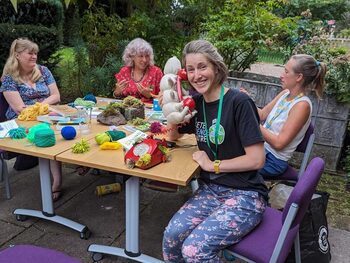
Art and Energy CIC ran 4 workshops with people from the Exeter Diocese Network of Churches across Devon, to look closely at mosses and discover the vital roles that they play in responding to the climate and ecological emergencies. Participants contributed to the big Mossy Carpet artwork that they are creating!
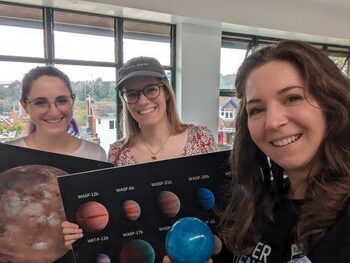
CoLab ran two workshops for their members on the theme of Planets and Stars, guided by academics in the University of Exeter’s Astrophysics Group. During these workshops, the participants found out about local research and broader topics in astrophysics and astronomy, whilst carrying out creative activities with space-themed refreshments.
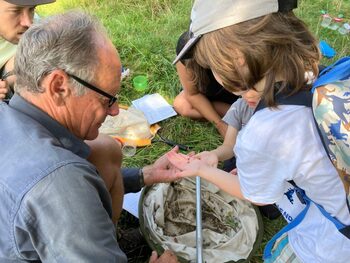
Exwick Community Association organised a bioblitz to help the local residents find the nature that lives all around them, whilst highlighting the careful science of observation and recording data. They spent the event counting and identifying plants, insects and animals, and photographing, sketching and recording them to map their location.
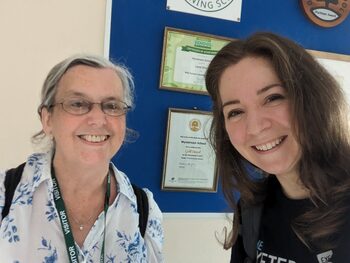
Interwoven Productions CIC worked with Chestnut Nursery and Wynstream Primary School to engage families in the Wonford area with a community-led landscape/heritage project. When the school site was re-developed in 2005 archaeologists identified Bronze Age and Iron Age ditches plus a range of artefacts from different ages. Children and their families explored the science of remote sensing archaeology through the history of their local area.
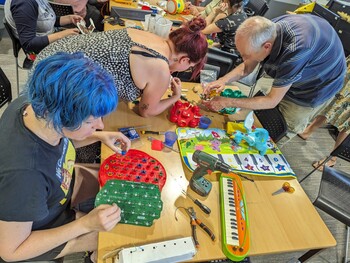
Makeshift CIC ran a workshop for women to help introduce them to electronics in a fun, unusual way; by hacking children’s toys in a process known as ‘circuit bending’. The aim was to create unique musical instruments and sound generators, whilst learning about electrical circuits and how sound is generated electronically.
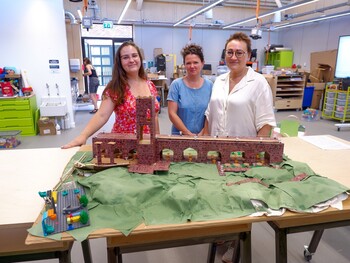
Maketank Cultural Lab & Devon Ukrainian Association organised a 2.5 day workshop with young Ukrainian women currently living in Exeter, to envision the future of the city by introducing them to behavioural science and placemaking. They learnt how to identify the physical and cultural aspects of places to design meaningful solutions that can strengthen a sense of identity, access, and ownership of a place.
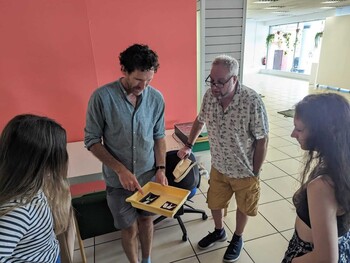
Positive Light Projects ran a day of experimental cameraless photography workshops for the general public. Working in their brand new darkroom, they covered a range of analogue photographic techniques and alternative processes, including photograms, chemigrams, anthotypes, lumen prints and cyanotypes.
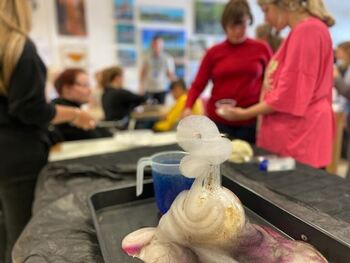
The Pelican Project Exeter CIC worked with Ruth MacLaren of Sciencedipity, to organise a workshop for its members in response to Exeter Science Centre’s Climate Exhibition that they visited during the British Science Festival.
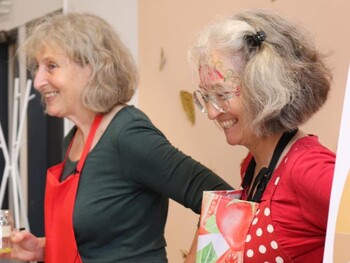
Seed-Exe-Change (Exeter Seed Bank) organised the first ever Exeter Tomato Festival (ETF) for the general public, promoting tomato diversity and seed saving. They demonstrated seed saving and the fermentation process that is part of saving tomato seeds, whilst highlighting the science of taste, and encouraging people to grow-their-own.
We really enjoyed supporting the development of these projects! The participants have been invited to submit blogs for the British Science Association website to summarise their events, and you can read these below:
